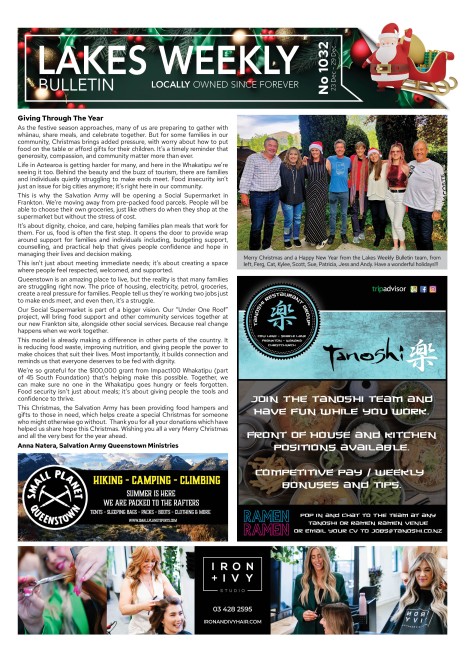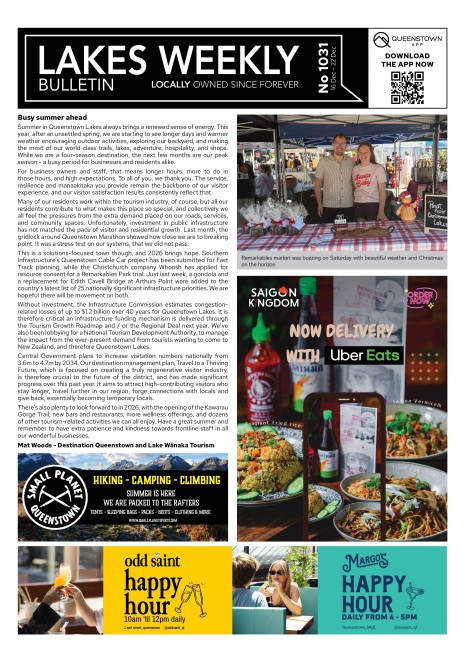NUESTRA VOZ - ¿Cómo hacer amigos de adulto?
La importancia de los vínculos de amistad y conexiones interpersonales son fundamentales para nuestro bienestar emocional. Pero en la era moderna, la soledad se ha convertido en una epidemia cuando paradójicamente estamos más conectados que nunca.
Somos seres sociales por naturaleza, por lo que la necesidad de establecer relaciones con otros es innata, sobrevivimos gracias a la comunidad y la precisamos para sentirnos completos. Podemos tener cientos de amigos virtuales, recibir innumerables likes y comentarios en nuestras redes sociales, pero eso sólo llena un vacío de forma superficial provocando aún más aislamiento.
Mi sobrina Aurora tiene ocho años y cada vez que va a un parque, sólo se acerca a algún otro niño y le pregunta “¿quieres ser mi amigo?” y automáticamente se crea una amistad transparente y sin juicios, en la que jugar y reír son las bases fundamentales.
Pero ¿qué pasa cuando somos adultos, por qué es distinto establecer este tipo de vínculos? Como explica la sicología, solemos creer que la amistad debe surgir de manera espontánea, sin esfuerzo de nuestra parte. Para cambiar esta realidad, debemos estar conscientes de que construir es la clave.
La ciencia nos dice que la amistad se basa en la continuidad de nuestras interacciones sociales. Los niños usan dos ingredientes: interacciones repetidas no planificadas y la capacidad de mostrarse vulnerables. En la adultez, aunque haya contacto reiterado, a menudo nos falta el componente de la vulnerabilidad, ya que nos cuesta mostrarnos de forma abierta debido a las normas sociales, los prejuicios y los preconceptos que hemos adquirido a lo largo de los años. Siempre está el miedo de no gustarles a los demás.
Entonces, ¿cómo podemos dar el primer paso para hacer amigos como adultos?:
- Demuestra interés genuino: En lugar de tratar de impresionar, muestra autenticidad y aprecio, comparte lo que te gusta y lo que valoras de esa persona. Envía mensajes y demuestra que estimas su presencia.
- Mantente cerca: La proximidad es esencial para construir amistades sólidas. Cuanto más tiempo pasas con alguien, más confianza se desarrolla. Y no se trata sólo de estar físicamente cerca, sino de mantener un contacto continuo.
- Muestra vulnerabilidad: Aunque puede ser desafiante, exponer tus miedos, debilidades e inseguridades te permitirá crear un vínculo basado en la confianza. Compartir experiencias personales puede generar conexiones más fuertes en poco tiempo.
- Evita tu teléfono: En la era de la tecnología, es fácil caer en la trampa de estar en nuestro móvil en lugar de conectarnos con las personas. Opta por interacciones reales cuando estés con gente, sin distracciones en una pantalla.
Mientras que para algunos hacer verdaderas amistades es sencillo, para otros se vuelve una tarea compleja. Pero no importa la edad ni de dónde vengas, como adultos tendremos la capacidad de formar conexiones si volvemos quizás a interactuar como en nuestra infancia, sin ocultar nuestra identidad, siendo espontáneos y genuinos. Abrámonos a lo hermoso que es crear nuevos vínculos y a dejar una huella en los demás.
English translation:
How to make friends as an adult?
The importance of friendship ties and interpersonal connections are fundamental to our emotional well-being. But in the modern age, loneliness has become an epidemic when paradoxically we are more connected than ever.
We are social beings by nature, so the need to establish relationships with others is innate, we survive thanks to the community and we need it to feel complete. We can have hundreds of virtual friends, receive countless likes and comments on our social networks, but that only superficially fills a void, causing even more isolation.
My niece Aurora is eight years old and every time she goes to a park, she just walks up to some other kid and asks “do you want to be my friend?” and a transparent friendship without judgments is automatically created, in which playing and laughing are the fundamental bases.
But what happens when we are adults, why is it different to establish this type of bond? As psychology explains, we tend to believe that friendship should arise spontaneously, without effort on our part. To change this reality, we must be aware that building is the key.
Science tells us that friendship is based on the continuity of our social interactions. Children use two ingredients: repeated unplanned interactions and the ability to be vulnerable. In adulthood, even if there is repeated contact, we often lack the component of vulnerability, since it is difficult for us to show ourselves openly due to social norms, prejudices and preconceptions that we have acquired over the years. There is always the fear of not liking others.
So how can we take the first step in making friends as adults?:
- Show genuine interest: Instead of trying to impress, show authenticity and appreciation, share what you like and what you value about that person. Send messages and show that you appreciate their presence.
- Stay close: Proximity is essential to building solid friendships. The more time you spend with someone, the more trust develops. And it's not just about being physically close, but about maintaining continuous contact.
- Show vulnerability: Although it can be challenging, exposing your fears, weaknesses and insecurities will allow you to create a bond based on trust. Sharing personal experiences can build stronger connections in a short time.
- Avoid your phone: In the age of technology, it is easy to fall into the trap of being on our cell phone instead of connecting with people. Opt for real interactions when you are with people, without distractions on a screen.
While for some making true friends is simple, for others it becomes a complex task. But no matter your age or where you come from, as adults we will have the ability to form connections if we perhaps interact again like we did in our childhood, without hiding our identity, being spontaneous and genuine. Let's open ourselves to how beautiful it is to create new bonds and leave a mark on others.









